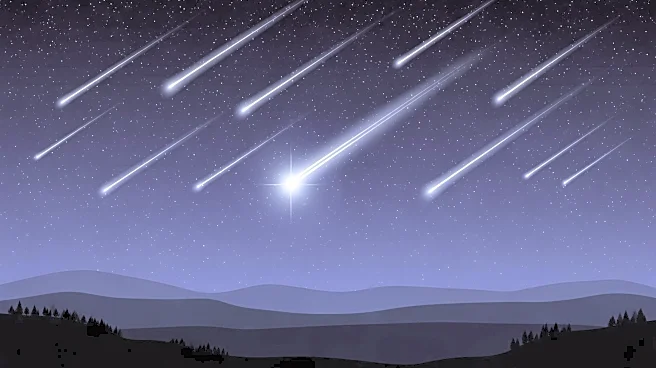What's Happening?
The annual Leonid meteor shower is set to peak early this week, providing sky-gazers with a chance to witness a celestial display. According to EarthSky, the peak will occur at 1 p.m. ET on Monday, with optimal
viewing times between 4 a.m. Monday and sunrise local time. The Leonids are known for their sharp peak, offering only one good night for viewing. The parent comet, 55P/Tempel-Tuttle, has a small debris trail, resulting in a brief duration of meteor activity. Observers can expect to see 10 to 15 meteors per hour under clear weather conditions. Historically, the Leonids have produced meteor storms with rates exceeding 1,000 meteors per hour, although such storms are rare.
Why It's Important?
Meteor showers like the Leonids offer a unique opportunity for public engagement with astronomy and science. They can inspire interest in celestial phenomena and encourage educational activities related to space and science. The Leonid meteor shower, with its potential for high meteor activity, can draw attention to the study of comets and their impact on Earth's atmosphere. Additionally, these events can boost local tourism in areas with optimal viewing conditions, as enthusiasts travel to witness the spectacle. The anticipation of meteor showers also highlights the importance of preserving dark skies free from light pollution, which is crucial for astronomical observations.
What's Next?
Following the Leonid meteor shower, sky-gazers can look forward to the Geminids and Ursids meteor showers later in December. The Geminids are expected to peak on December 13-14, while the Ursids will peak on December 21-22. These upcoming events provide additional opportunities for observing meteor activity. Furthermore, the last full supermoon of the year, known as the Cold Moon, will occur on December 4, offering another celestial event for enthusiasts to enjoy. As the Leonid meteor shower coincides with the comet's orbital cycle, the next significant event is anticipated in 2033, although it is not expected to be a storm.










